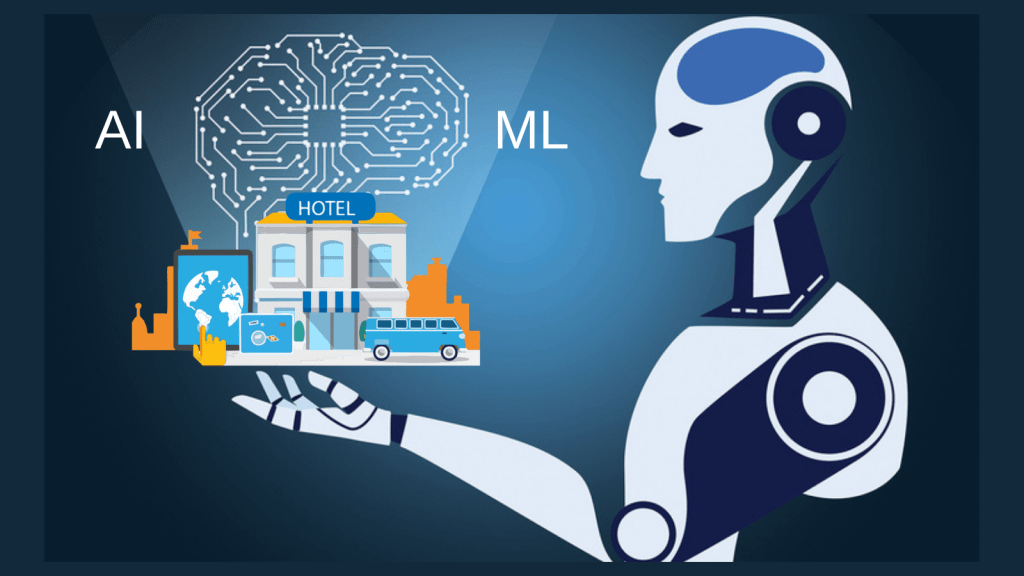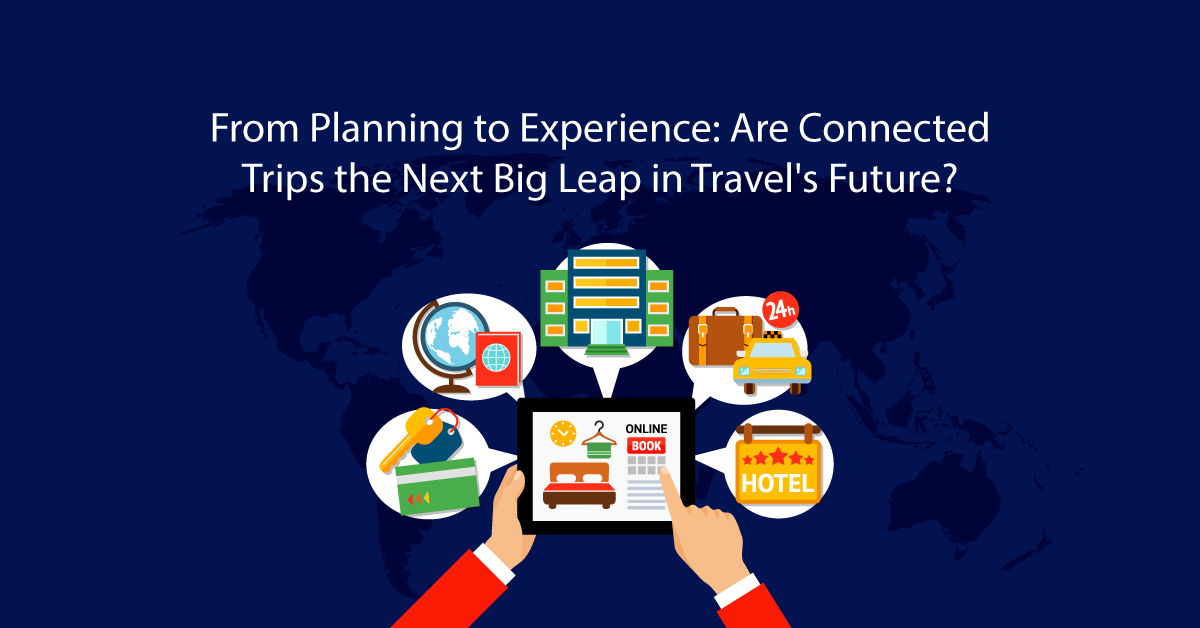The travel industry is forging ahead in terms of technology in a manner that was quite unprecedented even a couple of years ago. Those bygone days are gone when travel industries had traditional ways of selling. This new-age travel industry is one of the industries where the role of AI and Machine learning has increased exponentially in recent times. Today, customers are seeking more data and answers, more quickly from travel companies before making a purchase decision. Hence it has become far more important for all online travel agencies to adopt new hi-tech technologies that can deliver accurate, frictionless, timely, and customized results to their users. Big travel giants like Expedia, Trivago, Hotel.com, Airbnb have an immense set of data, and they need to analyze this data to bode out it through Predictive Analysis, AI and Machine Learning. So, let’s dig deeper and understand how the travel industry is taking the help of AI and Machine Learning technology to enhance the online customer experience.
What is Artificial Intelligence?
AI or Artificial Intelligence, as the name suggests, is the simulation of human intelligence by modern machines through the process of repeated learning, correcting and reasoning. A machine, while being incapable of making decisions by itself, can process a large number of data sets quickly in order to reach certain conclusions. Once such conclusions are met, a machine can quickly identify whether that conclusion is favourable or unfavourable in nature. If the conclusion is unfavourable, the machine can repeat the entire process till a favourable condition is met. Once this condition is met, the machine then registers that process and can apply it each time to reach a favourable conclusion without fail. This is called Machine Learning. Therefore, it can be seen that Artificial Intelligence and Machine Learning are intricately linked to each other where the application of Machine Learning leads to further models of AI with progressive levels of intelligence. We can then safely conclude that Machine Learning is a subset of Artificial Intelligence that continuously feeds computer systems with large amounts of data so that they can build relationships between data-sets and apply the same to the data-sets that are being fed.
So, where is AI is being applied in the travel industry to enhance the overall operations? Let’s look at some examples:
1. Flight and Hotel Price Prediction:
Ever wondered how you get the best deal recommendation of hotels or flights out of such a huge pool of data? Well, it’s all because of the powerful AI/ML technology which automatically monitors the market and provides the best hottest deals. Popular booking websites like booking.com and Trivago operate on history and real-time data which keeps their customers on the website for a long time. For Online Travel Agency portals each visitor is a potential customer and no OTA will ever want to lose them. So, to have an edge in their sales OTA’s use the power of AI/ML to hook new customers and to tempt them to book more trips.
2. Smart Travel Assistance and Responsive customer support:
In the fast-paced online world, users surf through several sites before making a purchase decision. In this journey, user travel assistance is important for a smooth booking experience. Today most of the OTA’s are leveraging the power of AI virtual travel assistants and interactive chatbot system which provides seamless and easy assistance to users. Customer support plays an important role in the travel industry, where any user can land on the website anytime for a booking. So, to make the customer journey smooth most of the OTAs are integrating chatbots. According to the HubSpot research report, 71% of people use chatbots to solve their problems fast. Chatbots provides full-fledged customer support 24/7 reducing the load of human customer support. AI/ML leveraged chatbots are an interesting way to keep users engaged and optimize various aspects of customer service. Through a custom programmed chatbot, users can get basic information and answers to FAQs for a smooth user experience.
3. Opinionated Content for Customers:
Do you ever leave a site because of inappropriate data shown to you which is not relevant to what you are searching for? Well, this is one of the major pain points for most of the OTA. Today users want relevant and accurate data in less time, and for this OTAs are taking the help of AI/ML.
4. Duplicity Free Content:
Imagine you are looking for an exciting awaited trip but while booking online, the same hotel was listed multiple times with different rates. So, would you like to purchase from that booking website? No right? Most of the OTA’s source their hotel data from multiple suppliers. While sourcing the data, multiple suppliers have the same hotel listings with variable rates.
5. Reducing Management Issues:
AI/ML technology also helps travellers while travelling. The predictive analysis provides an edge to prevent the hindrances that might come in the way of travellers and hampers their smooth journey.
6. Customized offers for customers:
Who doesn’t like loyalty programs? In the travel industry providing special customized offers to customers is the icing on the cake. Today OTAs take the help of AI/ML technology to gather the details of customer behavior and activities and provides them with specially tailored offers. This not only improves the customer experience but also retains loyal customers in the long run.Vervotech Mappings is a leading Hotel Mapping and Room Mapping API that leverages the power of AI and ML to quickly and accurately identify each property listing through the verification of multiple parameters. With one of the industry’s best coverage of 98% and an accuracy of 99.999%, Vervotech Mappings is quickly becoming the mapping software of choice for all leading global companies operating in the travel and hospitality industry. To learn more about Vervotech Mappings and the ways it can enhance your business in the long run contact us: sales@vervotech.com








